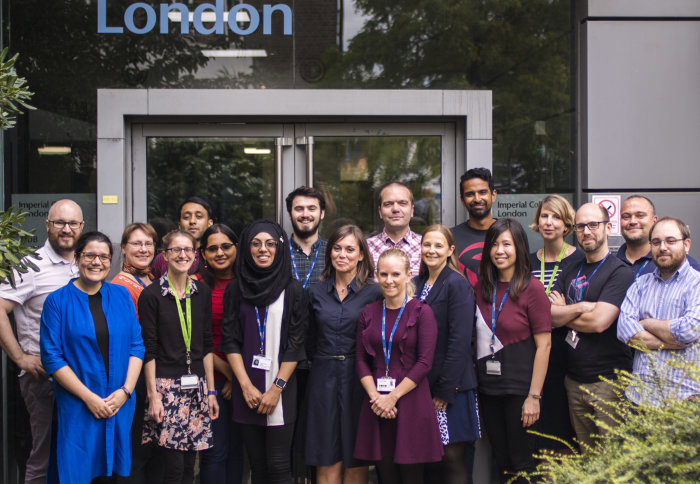Section of Bioanalytical Chemistry lays foundation for bench-to-bedside research

The Department of Metabolism, Digestion and Reproduction’s has launched the new Section of Bioanalytical Chemistry.
Situated within the Division of Systems Medicine and serving the broader Faculty of Medicine, researchers in the Section are focused on the precision measurement and analysis of the chemical composition of biological systems. Their aspiration is to bridge the gap between chemistry and medicine by driving successful collaborations which study human health and disease.
The group is expected to be a hub of activity within the Department, fostering a deeper understanding of the mechanisms, impact and clinical relevance of endogenous, microbial, and environmental exposure-related metabolism. The Section of Bioanalytical Chemistry will do so by developing, maintaining and promoting bioanalytical methods and technology use as a core Departmental competency.
Dr Matthew Lewis, Director of Metabolic Profiling for the Division of Systems Medicine and Chief Operations Officer for the National Phenome Centre heads up the new Section. His focus is on improving the accessibility and value of metabolomics and lipidomics research to basic science researchers, clinicians, epidemiologists and the broader public.
Speaking about the Section and its work, Dr Lewis said: “We’re working on striking the right balance of being both forward thinking and responsive to the needs of our collaborators. It is important to us to propel the field by growing and sharing our collective capability while also fostering collaborations which deliver on the expectations set at each project’s outset. Alongside this, the creation of the new Section is a great way to advance our own analytical chemistry research and development efforts which will help ensure Imperial stays at the forefront of the field”.
The section is already supporting dozens of project grant and fellowship applications and is working to bring online its own programmes of grant-funded research, including the early success of the recently launched MAP/UK MRC Partnership grant. The Section is also developing a significant educational element, both running and supporting a number of short-courses on bioanalytical technology use and data processing techniques. The Section is pleased to be hosting its first MRes students as well as new visiting post-doctoral fellows to join its already established team.
The new Section houses the recently relaunched National Phenome Centre, which serves as Imperial College London’s core resource for human health-focused metabolomics and a hub of analytical and data science proficiency within the UK. Led by technology pioneer and Head of Systems Medicine Professor Zoltan Takats, the Centre's primary focus is harnessing the vast data generated by its cutting-edge multi- technology platform to inform patient diagnosis and therapy - bringing data from the bench to the bedside.
In the last year, the Centre has focused on making its procedures more open and accessible, releasing a number of open-source data processing tools online with heavy emphasis on documentation and tutorials. So far, those efforts seem to be paying off. Dr. Lewis notes, “The feedback from the community has been great. Our attitudes toward analytical rigour, data quality and openness really seem to resonate, and we get lots of encouragement and positivity from colleagues at events and conferences”.
These changes have been good for business as well, as the Centre has seen an explosion of new collaboration interest. Ms. Lynn Maslen, Centre Manager says “this year we’re really having to focus on prioritisation and delivery. We receive so much interest but really want to make sure that we spend the right amount of time with each collaboration to ensure it’s as successful as it can be”.
Article text (excluding photos or graphics) © Imperial College London.
Photos and graphics subject to third party copyright used with permission or © Imperial College London.
Reporter
Benjie Coleman
Department of Surgery & Cancer